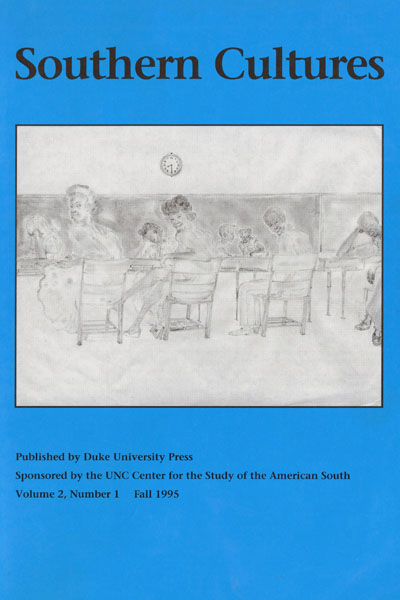While historians have long studied the way generations of southern leaders and intellectuals have debated the benefits of an agrarian versus an industrial way of life, the attitudes toward the environment of those who lived and worked close to the land remain much less explored. In the past southern intellectuals, arguing for an agrarian or an industrial program, have simply declared their speculations about the views of other southerners to be fact and relied on their subjective and ideologically colored observations for an understanding of the life of the ordinary folk of the South. This debate contributed to the establishment in the 1930s of the pathbreaking southern oral history program of the New Deal’s Federal Writers’ Project (FWP). The FWP’s southern life histories program allowed ordinary southerners to join that debate and created a valuable oral history source for a study of the relationship between southern cultural, social, and environmental history. In effect, W. T. Couch, the director of the FWP southern life histories program, tried to use oral history to break out of the confines of a sterile debate confined to a small elite. The FWP interviews documented southern folklife in a way that not only illustrated the connection between different southern ways of life and various southern natural environments but also allowed ordinary southerners to offer their own perspectives on this relationship.
This article appears as an abstract above, the complete article can be accessed in Project Muse


